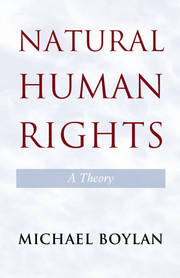Book contents
- Frontmatter
- Dedication
- Contents
- Preface
- Acknowledgments
- Part One Conceptualizing Human Rights
- Overture
- 1 How Do We Talk about Human Rights?
- 2 A Short History of Human Rights in the West
- 3 A Short History of Human Rights in China
- Part Two Justifications for Human Rights
- Part Three Applications of Human Rights
- Glossary
- Bibliography
- Index
Overture
“The Spotted Butterfly”
Published online by Cambridge University Press: 05 September 2014
- Frontmatter
- Dedication
- Contents
- Preface
- Acknowledgments
- Part One Conceptualizing Human Rights
- Overture
- 1 How Do We Talk about Human Rights?
- 2 A Short History of Human Rights in the West
- 3 A Short History of Human Rights in China
- Part Two Justifications for Human Rights
- Part Three Applications of Human Rights
- Glossary
- Bibliography
- Index
Summary
Life is about suffering,
Hang on until it’s over.
It was almost three weeks since the end of the long rainy season. The ground was drinking in the water from the rains. In a small village, Gimbaya N’kufo was doing chores with her daughter, Mangeni. They were going down to the river to wash their clothes. Many people in the village criticized Gimbaya because she did her own washing. They said that the wife of the village chief should have someone else wash the clothes. But Gimbaya was a strong woman. Though slight in height, she had broad shoulders and had developed endurance because of her willingness to work.
It was important to wash clothes early in the day while the locusts were still singing their songs before the water went bad. People got sick when they washed their clothes later in the day. Gimbaya was able to wake up with the sun and do her duty. When she returned she prepared a meal and then attended to the education of her two children.
Life was good. Adaon, her husband, was a tolerant man and rarely beat her. He spent his days attending to people’s complaints. It was not an easy task to be a village chief. Gimbaya was generally popular with the village women despite her meek demeanor. Some said she did not deport herself with sufi cient pride for a woman of her station. On this day, after she had worked with her own children, a young unmarried woman in the village named Makemba Youlou came over to greet Gimbaya. “Makemba how is it with you today?”
- Type
- Chapter
- Information
- Natural Human RightsA Theory, pp. 3 - 8Publisher: Cambridge University PressPrint publication year: 2014

